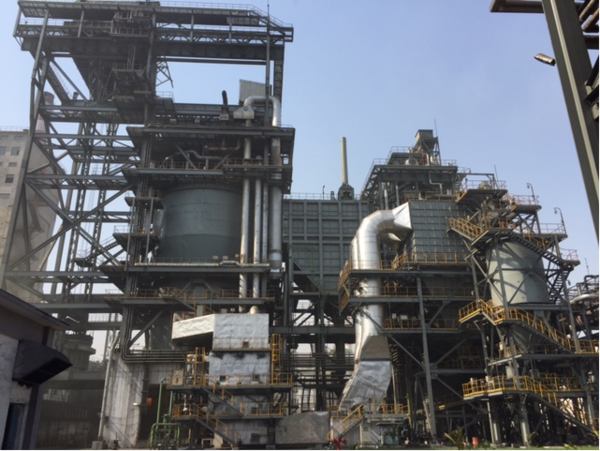March 5, 2019
Nippon Steel & Sumikin Engineering Co., Ltd.
Nippon Steel & Sumikin Engineering Co., Ltd. (Representative Director and President: Shinichi Fujiwara; Head Office: Shinagawa-ku, Tokyo; hereinafter, "NSENGI") is pleased to announce that it has received an order for two large-scale coke dry quenching (CDQ*1) systems from Tata Steel Ltd.(hereinafter, "Tata Steel"), India's largest private steel company, jointly with its subsidiary company Nippon Steel & Sumikin Engineering India Pvt. Ltd. (hereinafter, "NSEI"). The CDQ systems, each capable of processing 200 tons per hour, will be installed at Tata Steel's Kalinganagar steel plant (hereinafter, "steel plant") as part of its phase 2 expansion plan.
The CDQ systems ordered feature the same processing capacity as the No. 1 CDQ system completed by NSENGI in February 2017 for the phase 1 construction of the steel plant, and they are the largest in India. As CDQ systems become larger in scale, it becomes increasingly difficult to maintain uniform cooling performance and the same level of efficiency. NSENGI has made considerable efforts to develop CDQ systems with improved cooling efficiency, and boasts an outstanding track record of delivering numerous large-scale CDQ systems around the world. To date, NSENGI has consistently executed its CDQ projects without any major disruptions or failures, including the No. 1 CDQ system mentioned above, and its systems operating around the world have demonstrated exceptional reliability. These past successes have been rated highly and led to the latest order from Tata Steel.
In India, steel plants at first generally installed multiple small-scale CDQ systems, based on technology introduced from overseas, to meet the required total processing amount. These early CDQ systems each had a processing capacity of approximately 50 tons per hour. In 2011, NSENGI delivered CDQ systems (processing capacity: 135 t/h each) of a scale capable of processing the total amount of coke required with one system for Tata Steel's Jamshedpur Works. These were the first such systems ever adopted in India. Subsequent CDQ systems delivered in India have increasingly grown in scale to provide greater processing capacity, giving consideration to efficiency and economics. NSENGI has so far received orders for a total of 12 CDQ systems (including the latest two) from major steel companies in India.
NSENGI will leverage its strengths in environmental and energy-saving technologies cultivated in the Japanese steelmaking industry by actively marketing its CDQ systems in India, where environmental issues are becoming more pressing as a result of rapid economic and industrial growth. Going forward, NSENGI will build a solid foundation in India by further enhancing NSEI's business structure, while continuing to promote the growth of India's steel industry and help local steelmakers save energy and reduce CO2 emissions through increased adoption of CDQ systems.
*1 Coke Dry Quenching (CDQ) CDQ systems use an inert gas inside a cooling tower to cool red-hot coke that has been dry distilled in a coke oven. The sensible heat of red-hot coke, which previously has been dissipated, is recovered as steam with a boiler. These systems have been attracting considerable attention in recent years for three benefits they offer: less amount of dust generated when cooling coke, reduced CO2 emissions through power generation by steam, and improved quality of coke suited to use in a blast furnace. In India, installation of CDQ systems has recently become mandated from the perspective of the environment as in China.

CDQ system installed in phase1 expansion project
For more information, please contact below
go to TOP